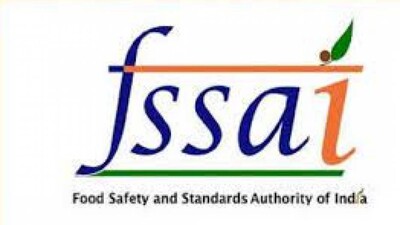Recommended Stories
In 2001, the World Health Organisation had announced that exclusive breastfeeding for six months was best for babies. In 2003, the then British Labour Minister Hazel Blears adopted the recommendation for the country.
But today, in the British Medical Journal, doctors from several leading child health institutes say the evidence for the WHO guidance was never there and that failing to start weaning babies on to solids before six months could be harmful.
Mary Fewtrell, a paediatrician from the childhood nutrition research centre at the University College London Institute of Child Health, said probably no babies had been harmed, as few mothers in the UK manage to stick to six months of nothing but breast milk.
"About one per cent were doing it in 2005, although probably more now. But only about 20 per cent breastfeed at all six months. It is not a common behaviour," Fewtrell was quoted as saying by the Guardian.
According to the paper, failing to start weaning on to solid food before six months appears to raise risks for the baby.
Other evidence, they say, suggests that babies not introduced to certain foods earlier than six months may have a higher incidence of food allergies. Countries like Israel where peanuts are used as weaning foods have low incidences of peanut allergy, they write.
The third potential issue is coeliac disease. The numbers of children developing coeliac disease rose in Sweden following advice to mothers to delay the introduction of gluten into their child`s diet until after six months, and it fell when the recommendation reverted to four months.
Fewtrell said she supported the WHO recommendation, but argued that it needed to be interpreted differently in different countries.
Exclusive breastfeeding protects against infections, which is critical in developing countries, but less important in the UK where hygiene and sanitation are better.
"There`s only one piece of evidence relevant to babies in the UK a slightly decreased risk of gastroenteritis," she said.
Reacting to the report, advocates of breastfeeding point out that the recommendation not to wean until six months has substantially cut the numbers of women who introduced solids before four months from 85 per cent in 2000 to 51 per cent in 2005.
But Fewtrell said that was no argument for misleading women.
"I really want to emphasise we are not in any way anti -breastfeeding, particularly in the long term," she said.
"We`re extremely pro-breastfeeding. We would go along with recommendations to breastfeed exclusively for four months."
Pro-breastfeeding groups were dismayed, however. UNICEF pointed out that it did not contain any new experimental data and said the UK policy had been a success as greater numbers of mothers now delayed the introduction of solids until after four months. It added that most early foods "are not nutrient dense and do not provide quantities of iron and zinc".
Patti Rundall of the campaigning group Baby Milk Action said moving to weaning at four months would be "a regrettable and backward step that is out of step with current scientific thinking".
She accused the paper`s authors of taking funds from the babyfood industry.
But Fewtrell was unapologetic for accepting funds from baby food industry.
"This is not an attempt to promote commercial weaning foods," she said. "We are a university and Medical Research Council-funded group." They had advised baby food manufacturers because they were specialists in child nutrition, she said.
"Some organisations are all too happy to quote our data when it supports breastfeeding," she said. "They are choosy in what they will allow."."
Meanwhile, the British Department of Health said it would review the research, adding: "Breast milk provides all the nutrients a baby needs up to six months of age and we recommend exclusive breastfeeding for this time."
"Mothers who wish to introduce solids before six months should always talk to health professionals first," the paper quoted the department as saying.












